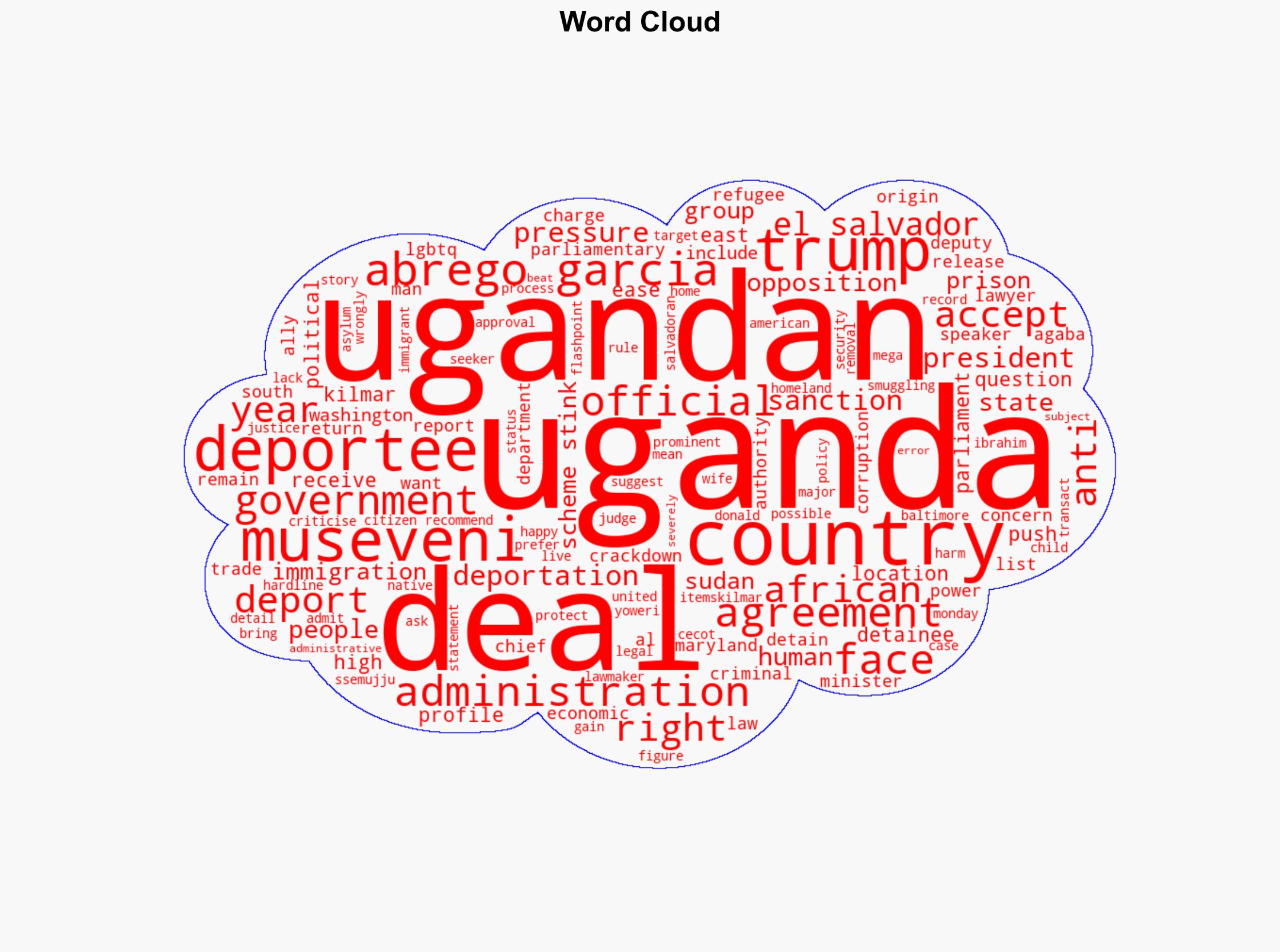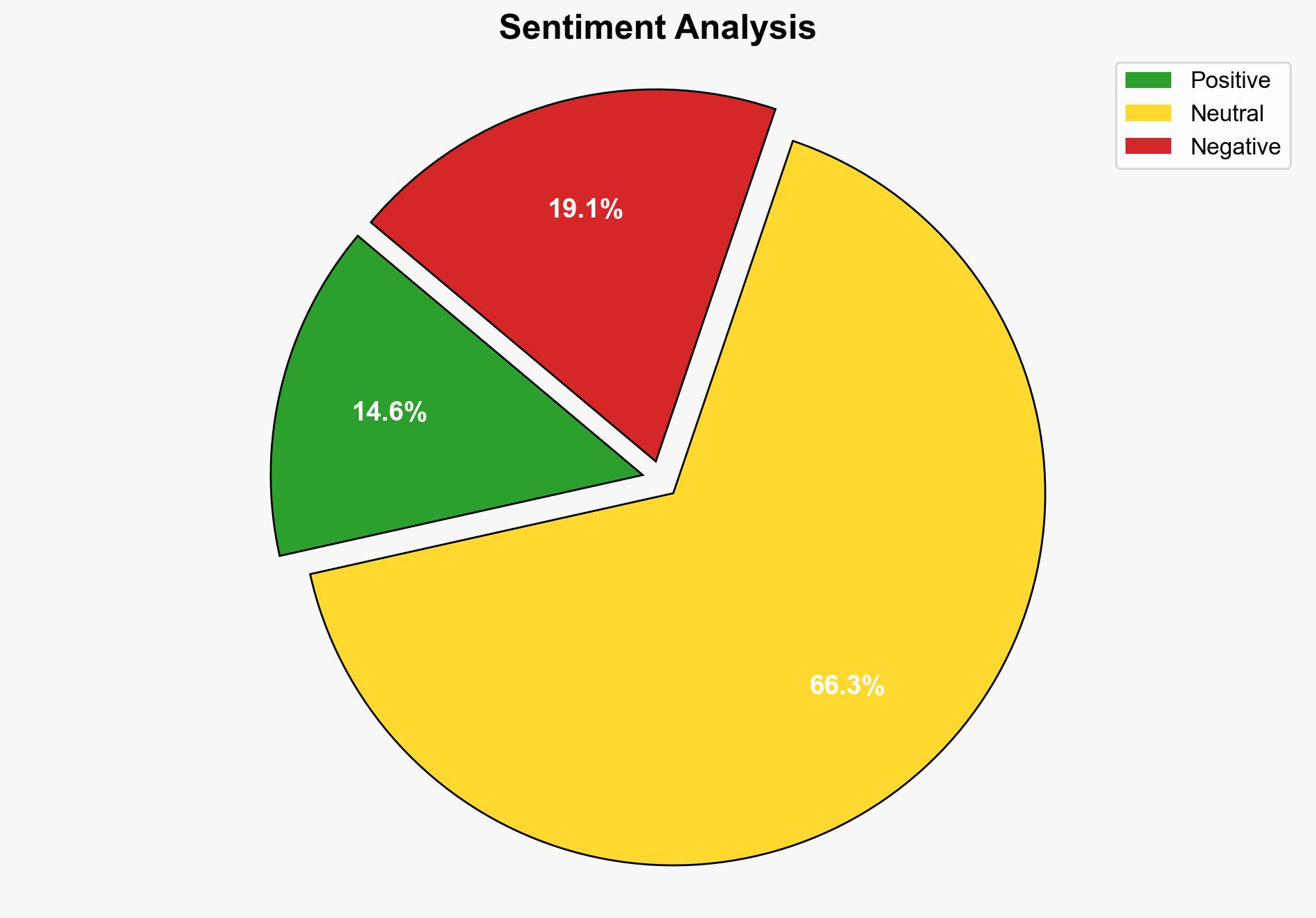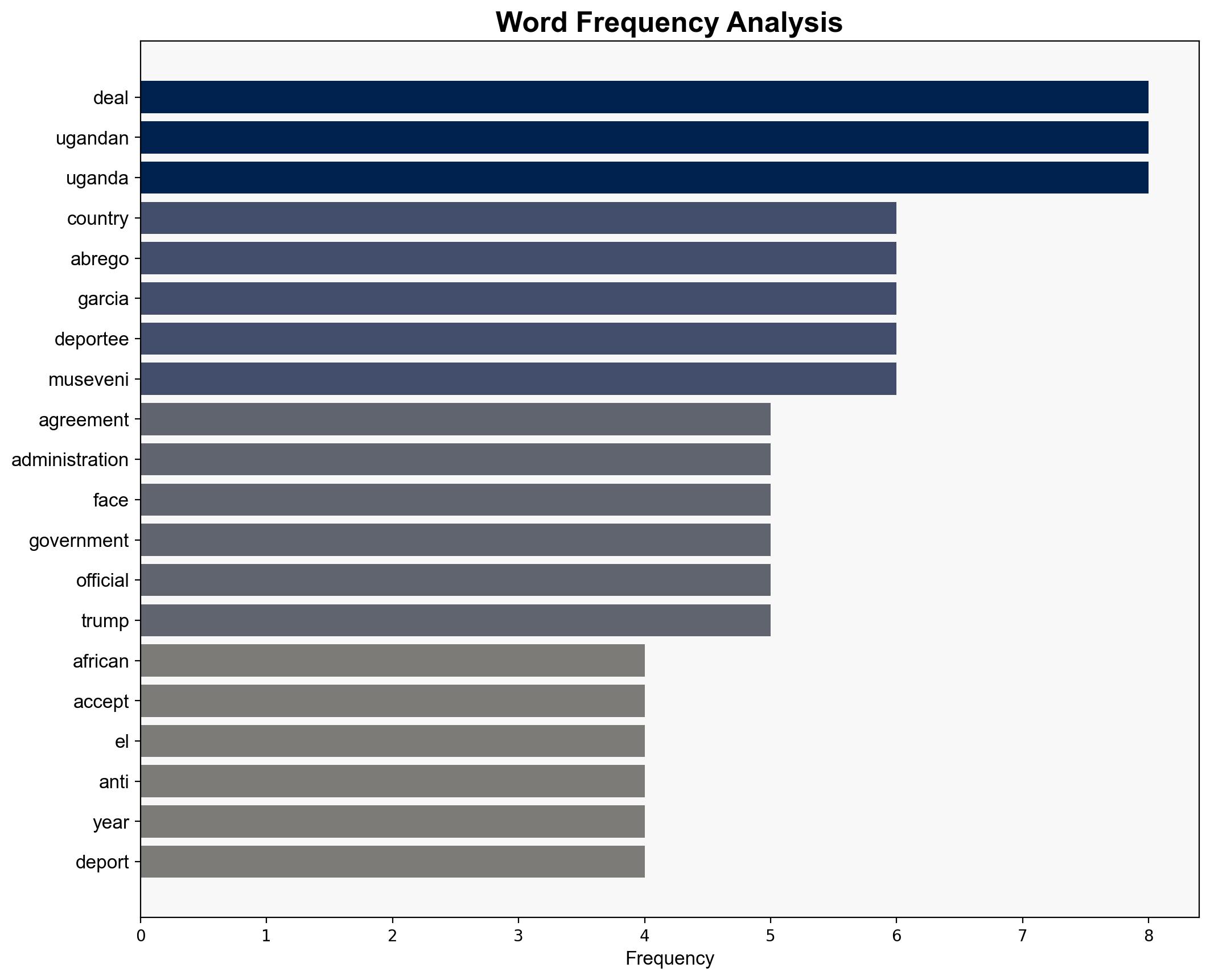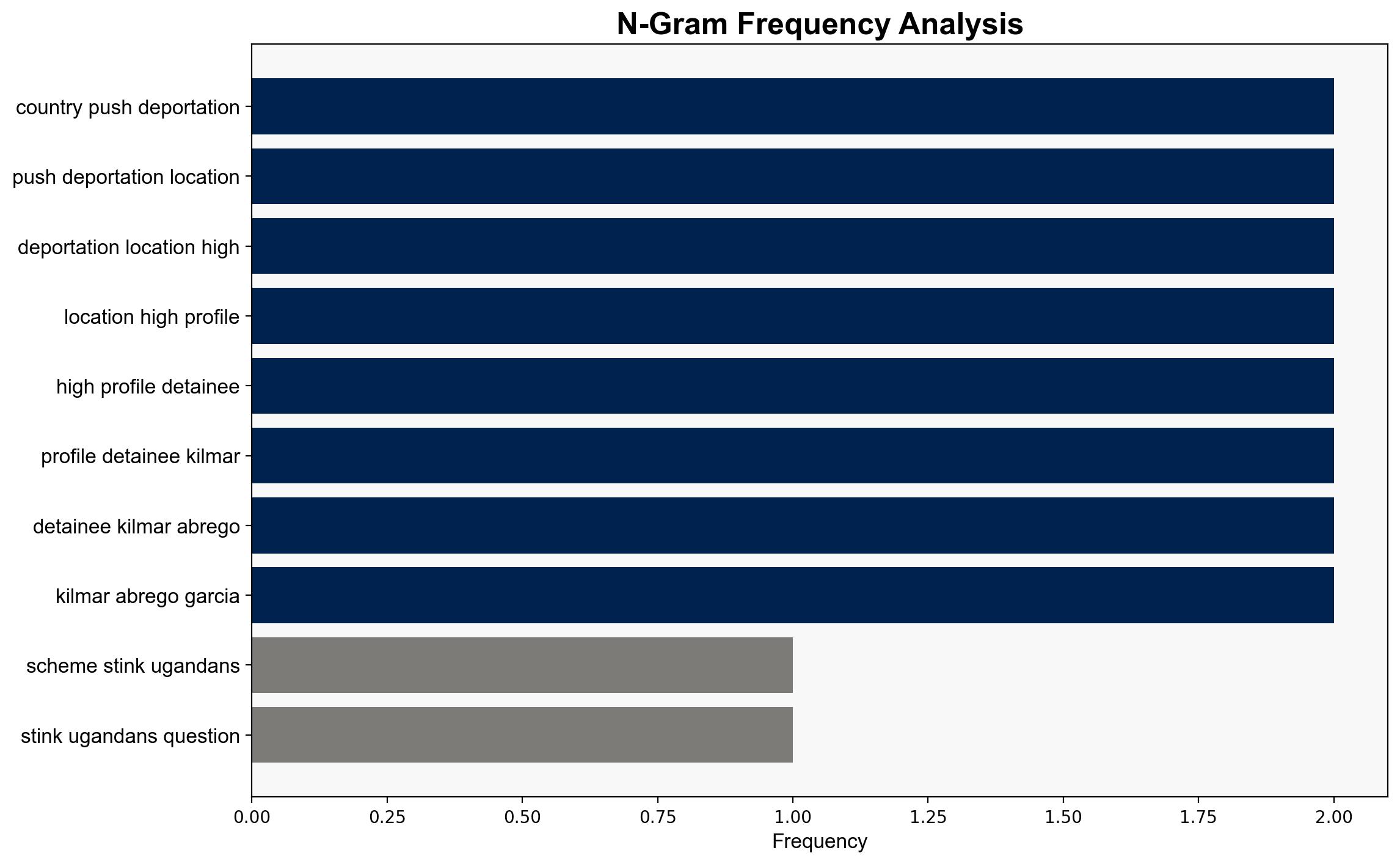The whole scheme stinks Ugandans question deal to take US deportees – Al Jazeera English
Published on: 2025-08-26
Intelligence Report: The whole scheme stinks Ugandans question deal to take US deportees – Al Jazeera English
1. BLUF (Bottom Line Up Front)
The most supported hypothesis suggests that the agreement between Uganda and the United States to accept deportees is primarily a strategic maneuver by Uganda to alleviate political pressure from the U.S. This hypothesis is supported by Uganda’s historical alignment with U.S. interests and the current geopolitical context. Confidence level: Moderate. Recommended action: Monitor Uganda’s international relations and internal political dynamics for shifts that may indicate changes in their strategic positioning.
2. Competing Hypotheses
1. **Hypothesis A:** The agreement is a strategic move by Uganda to ease political pressure from the U.S., especially concerning sanctions and human rights criticisms. This aligns with Uganda’s need to maintain favorable relations with the U.S. for economic and security support.
2. **Hypothesis B:** The agreement is primarily an economic decision by Uganda to gain financial or trade benefits from the U.S., possibly in exchange for accepting deportees, despite the lack of parliamentary approval and public support.
Using ACH 2.0, Hypothesis A is better supported due to Uganda’s historical cooperation with the U.S. in counter-terrorism efforts and the timing of the agreement amidst increased U.S. pressure on Uganda’s human rights record.
3. Key Assumptions and Red Flags
– **Assumptions:** Hypothesis A assumes Uganda’s leadership prioritizes international relations over domestic approval. Hypothesis B assumes economic incentives are sufficient to override political and social opposition.
– **Red Flags:** Lack of transparency in the agreement details and absence of parliamentary approval suggest potential deception or hidden agendas. The contradiction between official statements and actions raises questions about the true motivations behind the agreement.
4. Implications and Strategic Risks
The agreement could strain Uganda’s domestic political environment, increasing opposition and public dissent. Internationally, it may affect Uganda’s relations with other African nations and its standing in regional organizations. The potential for increased U.S. influence in Uganda could alter regional power dynamics, impacting counter-terrorism efforts and economic partnerships.
5. Recommendations and Outlook
- Monitor Uganda’s internal political stability and public response to the agreement.
- Engage with regional partners to assess the broader impact on East African geopolitics.
- Scenario Projections:
- Best Case: Uganda leverages the agreement to improve U.S. relations and secure economic benefits without significant domestic backlash.
- Worst Case: The agreement leads to increased domestic unrest and deteriorates Uganda’s regional relationships.
- Most Likely: Uganda maintains a delicate balance between appeasing the U.S. and managing internal dissent, with moderate economic gains.
6. Key Individuals and Entities
– Yoweri Museveni
– Kilmar Abrego Garcia
– Ibrahim Ssemujju
– Okello Oryem
– Mary Abrego Garcia
7. Thematic Tags
national security threats, geopolitical strategy, human rights, regional focus





